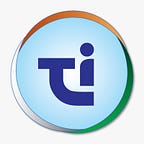Evolution of Education System in India
The evolution of the education system in India is like a fascinating narrative that has been woven into the fabric of time, culture, and social change. There has been a dynamic and revolutionary transition from Gurukuls in ancient times to digital classrooms in current times.
Gurukuls of the Past — A Haven for Insightful Teachers
The Gurukul system was the bedrock of Indian education a century and a half ago. Living with one’s guru allowed students to absorb knowledge orally, fostering an approach to education that went beyond what was taught in books. Academic instruction and real-world skill development were seamlessly integrated.
Colonialism and the New Paradigm
The educational environment changed drastically when the British colonial period began. Creating a workforce suited to satisfy imperial demands became the primary goal of a highly regimented, colonial-centric educational system. A new era in western education began when English replaced other languages as the medium of instruction.
Change-Sown via Post-Independence Reforms
India aimed to reimagine its educational landscape after achieving independence in 1947. Educational reforms were initiated by the Kothari Commission in 1964, which stressed the importance of a populace-wide, holistic approach to education.
The Shift Ahead: Liberalization and Globalization
The liberalization and globalization of the economy in the 1990s had an effect on many fields, including education. Numerous private schools sprang up, each with its own unique curriculum and area of expertise. Education was refocused to meet the needs of a dynamic global economy through an outcome-oriented strategy.
Emergence of New Technologies — From Online Education to Beyond
The educational scene has been utterly transformed by the lightning-fast advancements in technology in the last decade. Modern education would be incomplete without the widespread use of online resources such as virtual libraries, e-learning modules, and classrooms. Information has skyrocketed in accessibility, removing geographical constraints.
Possibilities and Difficulties
Despite the great evolution of the education system in India, there are still many obstacles to overcome. A need for skill-centric learning, out-of-date curricula, and educational inequality are critical concerns. Nevertheless, these obstacles also offer chances for creativity and inclusion.
Fresh Approaches to Education — Fostering Analytical Thinking
Innovative pedagogies are gaining popularity as a solution to the changing demands of today’s society. A growing number of schools are recognizing the importance of developing students’ critical thinking and problem-solving abilities through programs that emphasize skill development, experiential learning, and project-based learning.
Function of Educational Technology in Filling In gaps
A paradigm shift has occurred due to the proliferation of EdTech. Education is now more accessible than ever before thanks to online courses, interactive learning platforms, and virtual labs. The educational gap between urban and rural areas is shrinking as a result of the democratization of information made possible by technology.
Encouraging Openness Regarding Consumer Rights in Education
Consumer rights must be prioritized in education while it undergoes transformation. Parents and students are increasingly seen as consumers who expect educational institutions to be open, accountable, and provide high-quality services. One annual reminder of this shifting perspective is National Consumer Rights Day.
In summary
Tradition, colonial influence, reforms, and technological breakthroughs are all intertwined in the evolution of the education system in India. Continuing to shape the minds of future generations, we embrace both the lessons of the past and the opportunities of the future. In recognition of National Consumer Rights Day, we must remember that education is a fundamental human right, not an optional extra. We must strive for excellence and equity in the dynamic field of education.
